

Tao Te Ching

Skeptic (Σκεπτικιστικός) Lineage
The original meaning of this word and philosophy referred to the process of seeking, searching for the truth. Since there’s always room for doubt, the core principle became the suspension of judgment. Modern skepticism championed by Descartes postulated a demon-like external force filling our minds with false beliefs but also the possibility of finding an absolute truth. The early Greek version doubted this possibility also and described the skeptical search itself as a recipe for happiness, a way of living for the ideal sage. Siting “Chinese whispers” or “the telephone game” and quoting Socrates saying “I only know that I know nothing,” it described all truth as relative to the observer, things are neither one way or another, and recommended avoiding all opinion and belief. Skeptics like Arcesilaus attacked Stoics as proposing a balance between science and opinion which they thought impossible because basically a contradiction in terms.
People (16)

Protagoras
490 – 420 BCE
“The wisest man alive”—Socrates
Born poor and laboring as a porter, Protagoras was called by Socrates “the wisest man alive” and became a friend of Pericles, so respected that Plato wrote a book about him, and a philosopher so original that he started a thought revolution in ancient Greece with his theory of relativism. This led to an agnosticism that furthered science but aroused enough anger to expel him from Athens and have all copies of his books burned in the marketplace. His still famous statement that "Man is the measure of all things” continues his influence and his saying, “There are two sides to every question” has become a truism and idiom in most languages.
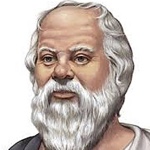
Socrates
469 – 399 BCE
One of the most powerful influences on Western Civilization
A founder of Western philosophy, Socrates’ immense influence, methods and insight challenged conventions and encouraged a simple way of life. His lineage continued through Plato, Aristotle, Alexander the Great and some of his other students began important schools of philosophy like Cynicism and Stoicism. Famous for developing the Socratic Method still used today and which could be considered a way of moving from understanding the words to understanding the sense; Socrates became a profound influence on the Roman empire, medieval Europe, the Islamic and Judaic Middle East, the Renaissance and the Age of Reason in Europe. Through more modern philosophers like Locke, Hobbes, and Voltaire; Socrates stays with us today.
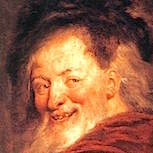
Democritus Dēmókritos
460 – 370 BCE
Father of modern science and greatest of ancient philosophers
The "father of modern science,” famed for his atomic theory of the universe, mathematics and geometry pioneer, called by Francis Bacon “the greatest of ancient philosophers;” the famously cheerful Democritus was born into a very rich family but spent almost all his money becoming in his era the most widely traveled going as far as Ethiopia, Persia, and India where he is said to have been exposed to and influenced by Buddhism. Returning without wealth, he devoted himself to a simple life of philosophy, science, music and art creating an influence still with us today.
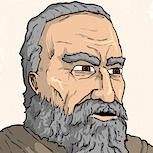
Pyrrho
360 – 270 BCE
Father of the skeptic school of philosophy, painter influenced by Democritus into philosophy, and venerated high priest of Elis; Pyrrho travelled with Alexander the Great to India, met Magi and Eastern wise men who inspired his philosophy and lifestyle. Learning some Buddhism, he brought the Three marks of Existence teachings (suffering, impermanence, and egolessness) into the West and taught that for every statement, it’s opposite can be proposed with equal justification. A huge influence on the modern skepticism of Descartes, he was so respected and appreciated in his own time that philosophers were made exempt from taxation.
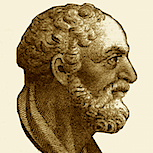
Arcesilaus Ἀρκεσίλαος
316 – 241 BCE
Founder of the Greek Middle Academy and the first to adopt Academic Skepticism doubting the ability of the senses to discover truth, Arcesilaus debated against the Stoic belief that reality can be known with certainty. He didn’t doubt that “truth” exists, only that it could be confined in concepts. This led to an emphasis on practical life like in the Zen tradition (“chop wood, carry water”) with a disregard for speculation, superstition, and belief systems; an emphasis on moderation; and an early appreciation and respect for a philosophy of doubt (though he was accused by Pascal of becoming a dogmatist in later life - a testament to the power of herd instinct and the desire to belong above creativity and openness).
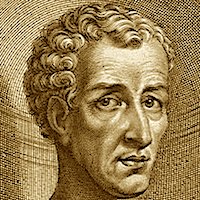
Lucian of Samosata
125 – 180 CE
Monumental influence on western literature.
Syrian satirist, Roman rhetorician, Egyptian official, traveling teacher, and prolific, popular author; Lucian used sarcasm, irony, and humor to make fun of philosophical schools, superstition, religious practices, plutocracy, and paranormal beliefs. His writings include the first science fiction, A True Story (complete with journeys to the moon and to Venus, extraterrestrials, artificial life, and interplanetary warfare), the oldest known version of "The Sorcerer's Apprentice,” and his invention of the comic dialogue genre in his parodies on the Platonic dialogue. Depicted in a Byzantine encyclopedia as burning in hell because of his criticism of Christianity, he became a monumental influence on western literature. His books inspired Shakespeare's Timon of Athens and Hamlet, Swift's Gulliver's Travels, Erasmus's Encomium Moriae, Thomas More's Utopia as well as Botticelli's paintings. His influence extends through the ages by way of Voltaire, Diderot, Cyrano de Bergerac, Jules Verne, David Hume, Henry Fielding, and many more.
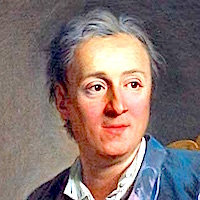
Diderot
1713 – 1784 CE
Philosopher, art critic, scientist, and writer; Diderot was imprisoned in solitary confinement for his philosophical views and mainly only known for his plays and encyclopedia during his lifetime. His rival Rousseau though believed posterity would give him the same respect as Aristotle and Plato and he was later admired by Goethe, Schiller, Balzac, Zola, and Schopenhauer. He was Karl Marx’s favorite prose writer and Comte called him the “foremost intellectual of an exciting age.” He worked on the Encyclopédie as a way of giving power to the common person and emphasized religious tolerance, freedom of thought, the value of science, and—threatening the French aristocracy—maintained that the main purpose of government should be benefiting the common people.
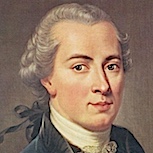
Immanuel Kant
1724 – 1804 CE
Credited with creating a paradigm shift responsible for much of modern philosophy, psychology, metaphysics, sociology, linguistics, and political theory; Kant was a quiet and introverted philosopher whose daily schedule was so precise that neighbors were said to set their watches by it. Child of the Enlightenment and father of the Romantic movement, he barely traveled but became “the central figure of modern philosophy,” inspired the American transcendentalism of Emerson and Thoreau, and a profound influence on many important thinkers like Hegel, Novalis, G. K. Chesterton, Schopenhauer, Bertrand Russell, Max Weber, Jean Piaget, and Noam Chomsky.
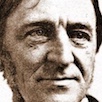
Ralph Waldo Emerson
1803 – 1882 CE
Champion of individualism
Friend and mentor to Henry David Thoreau and godfather to William James, Emerson championed individualism as a counterbalance to society’s conformist pressures. He wrote what Oliver Wendell Holmes considered America's “Intellectual Declaration of Independence” and he summarized his philosophy as “the infinitude of the private man.” The most influential writer of 19th-century America, he was called “the Concord Sage” and became the leading voice of intellectual culture in the United States influencing American religions to become more gnostic, less fundamentalist and conservative.
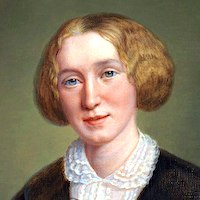
George Eliot (Mary Anne Evans)
1819 – 1880 CE
Pioneering literary outsider
Poet, journalist, translator, novelist, agnostic humanist, political agitator, and courageous follower of her own path; George Eliot wrote what some consider the best novel ever written in the English language (Middlemarch). Known for their psychological insight, her novels reflected her personal experience on the edges of the social, religious, and political fringe. Using a male pen name to escape the strong, feminine stereotypes of her era, this strategy also helped shield her from personal life scandals arising from norm-breaking situations like her adulterous relationship with philosopher George Henry Lewes and her marriage to John Cross who was 21 years younger. Her father didn't consider her beautiful enough to ever find a husband but clearly saw her high intelligence and financed a classical education for her far beyond what was normally available for women. Her father's wealth and high social status also gave her a clear perception of the extreme contrasts between the rich landowners and impoverished people living on those estates. This became a frequent theme in her books.
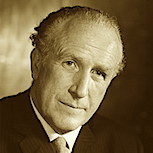
Arthur Desmond
1859 – 1929 CE
Arthur Desmond (c. 1859 – 1929), aka Arthur Uing, Ragnar Redbeard, Richard Thurland, Desmond Dilg, Gavin Gowrie
Bank-bashing heroic reformer, “The Poet of Revolution,” author, and politician; Desmond started a political organization dedicated to “emancipation from poverty, competitive commercialism, industrial wage slavery, tyrannical authority, and mental bondage." Like Machiavelli and his satirical book The Prince, Desmond was slandered by the rich and powerful plutocrats of his time as an immoral, satanic figure, advocating Social Darwinism, racism, and fascism. His book, Might Is Right, however, was called by fellow labor movement collaborators, “one of the greatest books ever written." He promoted land reform, the nationalization of large estates and banks, single taxation and called bank directors "scoundrels", large estate owners "blood-sucking leeches" and the local press as "hirelings of monopoly.”
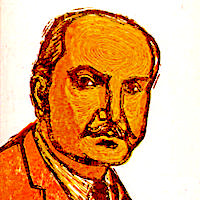
Santayana, George (Jorge Agustín Nicolás Ruiz de Santayana y Borrás)
1863 – 1952 CE
Powerfully influential, true-to-himself philosopher/poet
Poet first, philosopher second, novelist, Harvard dropped-out professor, Christian-atheist, free-thinking cultural critic; Santayana mixed his poetic genius with deep, philosophic insights; beauty with truth. Born in Spain, he brought an old European flavor and aristocratic appreciation to his new but temporary American homeland saturated with the idealism and individualism of Emerson and Thoreau. Many of his aphorisms have progressed from words of wisdom to cliché to truism. ("Those who cannot remember the past are condemned to repeat it") Professor to students like T. S. Eliot, Robert Frost, Gertrude Stein, Walter Lippmann, W. E. B. Du Bois, Conrad Aiken, and Supreme Court Justice Felix Frankfurter; major influence on thought-leaders like Bertrand Russell and Alfred North Whitehead; Santayana’s influence on awakened evolution continues

Bertrand Russell
1872 – 1970 CE
“20th century Voltaire”
Bertrand Russell (1872 - 1970)
Nobel laureate for championing “humanitarian ideals and freedom of thought,” famous logician, polymath, historian, writer, and social critic; Russell promoted a world government and a "scientific society.” From one of the UK’s most prominent aristocratic families, he dedicated his life to political and social activism trying to abolish war, poverty, prejudice, and imperialism. A prominent anti-war activist, he went to prison during World War I. In his early 70’s he recreated himself; continued a strong, active and relevant life being arrested and jailed for 7 days because of an anti-nuke protest when he was 89; and persevered using his considerable political influence up until days before he died at 97. A major influence on the development of computer science and artificial intelligence, he worked for nuclear disarmament, gay rights, and world peace.

Krishnamurti (Jiddu Krishnamurti)
1895 – 1986 CE
Born into a poor family with 11 children and a mother who died when he was 10, chosen and groomed by the Theosophical Society when he was 14 years old to become the new “World Teacher,” a messianic Maitreya and Cosmic Christ figure; Krishnamurti was showered with financial resources, reverence, publicity and followers. When still young, he renounced this role of guru and mystical belief system, disbanded the organization, and launched a teaching career that emphasized psychological rather than external revolution; going beyond philosophy, nationality, caste, religion; the sense over the words; and freedom from all social, political, or religious conceptual prisons.
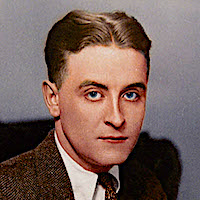
F. Scott Fitzgerald
1896 – 1940 CE
Prototype of "Jazz Age" exuberance
One of the greatest American writers, prototype of "Jazz Age" exuberance, and symbol of the "Lost Generation"; Fitzgerald became popular and successful during his lifetime but not respected in the literary world until after his death. His passion for writing interfered with his college pursuits and he had to drop out of Princeton and join the army where he became a student of Dwight Eisenhower whom he passionately disliked. During this time he met his future wife, Zelda Sayre who was the daughter of a state Supreme Court justice but she wouldn't marry him until his first novel became famous and he finally had an income steady enough to support her opulent lifestyle. Her later mental illness, his alcoholism, health and financial problems plagued his later years and he died from a heat attack when only 44.

Toni Packer
1927 – 2013 CE
A Zen teacher minus the 'Zen' and minus the 'teacher.’
Toni Packer (1927 – 2013)
Dropped-out successor to famous Zen teacher Phillip Kapleau, developer of the "meditative inquiry" practice, and founder of the Springwater Center; Toni Packer grew up in Nazi Germany needing to hide her Jewish heritage while becoming increasingly skeptical of authority. Following in the Krishnamurti lineage of spiritual anti-authoritarianism, she stopped calling herself a “Buddhist” and became "...a Zen teacher minus the 'Zen' and minus the 'teacher.’ ” Exiled from the Rochester Zen Center, she taught finding the essence, the sense, the true meaning hidden by dogma, rituals, organized religions and cultural traditions.
Related Sources (0 sources)
Quotes about the Skeptic Lineage (5 quotes)

“The wise skeptic is a bad citizen; no conservative; he sees the selfishness of property and the drowsiness of institutions.”
Comments: Click to comment

“men whose names were good for anything were usually pessimists, indisposed to believe that the universal order of things would necessarily be agreeable to an agreeable young gentleman.”
Comments: Click to comment

“James’ doctrine is an attempt to build a superstructure of belief upon a foundation of skepticism, and like all such attempts, it is dependent on fallacies… a form of the subjectivistic madness which is characteristic of most modern philosophy.”
Comments: Click to comment

“Once upon a time all the men of mind and genius in the world became of one belief—that is to say, of no belief. But it wearied them to think that within a few years after their death many cults and systems and prognostications would be ascribed to them which they had never meditated nor intended”
Comments: Click to comment
Comments (0)